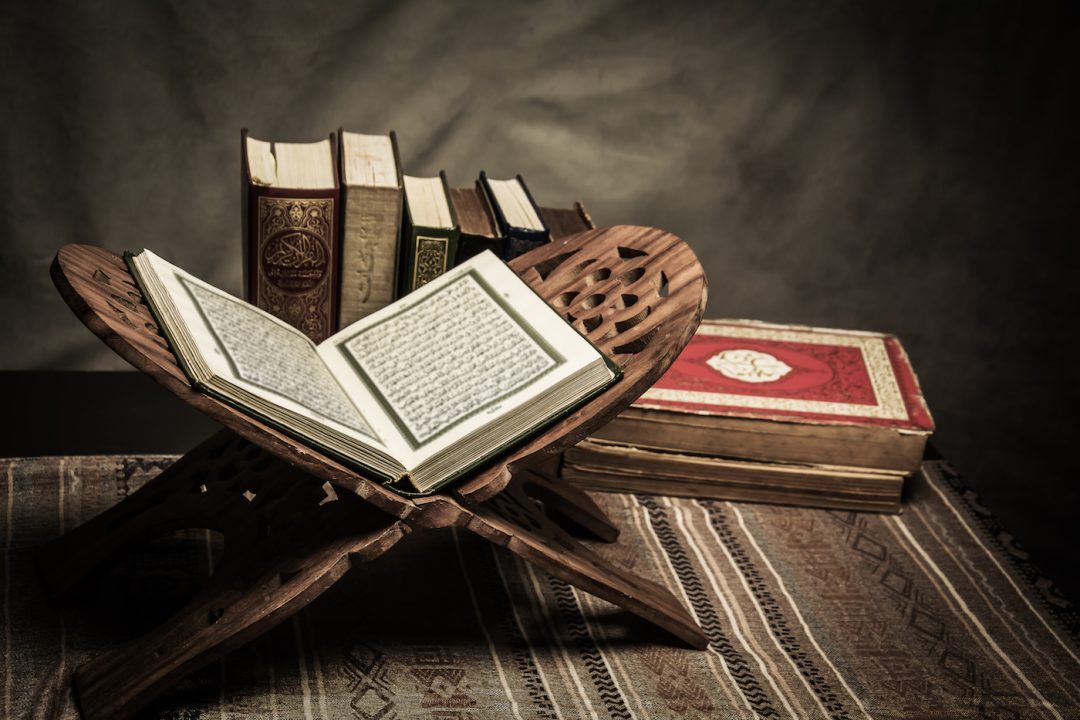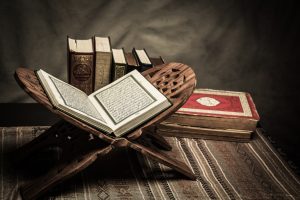
© Shutterstock
We proudly present the first full English translation of the commentary of Chapter 113, Sūrah al-Falaq, by Hazrat Mirza Bashiruddin Mahmud Ahmad (ra) in his magnus opus: Al-Tafsīr Al-Kabīr – The Grand Exegesis.
In the previous edition, we explored the different meanings of ‘I seek refuge from the Lord of the dawn.’
In this edition, we take a look at the meanings of the verse, ‘From the evil of that which He has created.’
Translated by Murtaza Ahmad
Edited by The Review of Religions Translation Team.
The words: قُلْ أَعُوذُ بِرَبِّ الْفَلَقِ * مِنْ شَرِّ مَا خَلَقَ draw one’s attention to seeking the help and protection of Allah Almighty while also indicating that if you wish to be safeguarded from the evil aspects of God’s creation, only Allah Almighty can save you. This is because He is the Lord of all creation and He knows best how to create good from all evil, and there is nothing among His creation that can move without His will.
Moreover, another meaning of مِنْ شَرِّ مَا خَلَقَ is that ‘O God, the Creator of all things: ‘I seek refuge with You against the defects that afflict things during the process of their formation, which would impede their progress and prevent them from reaching a state of perfection.’ Therefore, if there is any defect in the world, there is one of three causes:
- Defects when it was created.
- Defects at the end of something’s lifespan.
- Defects that develop due to the deteriorating conditions in the middle of its life.
The words مِنْ شَرِّ مَا خَلَقَ teach us the means to safeguard ourselves against the consequences that we may suffer from the defects at birth. Because if there are birth defects or problems when something is created, they will wreak havoc and the true purpose of [its creation] would be unattainable. For instance, man invented the pen but if it is not made well – if it is made badly – nobody would be able to write well with it. Similarly, if a house is built with a roof that leaks, nobody could comfortably stay in it. Or imagine one needs cold weather clothes but is given summer clothes or vice versa. This would be of no benefit. So too would be the case if someone were to buy a lame horse that they could not travel on.
So, anything that has an initial defect fails to achieve its desired purpose. It is for this reason that Allah Almighty has taught us the prayer: ‘Say: I seek Your protection against any defects left in me when I was created.’ When a person is born, they also inherit their parents’ evil deeds and faults. They have a tendency to behave in the same way as their parents. That is why the Holy Prophet (sa) commanded both husband and wife to supplicate and pray ‘O Lord, protect us from Satan and we ask for protection for our children as well’ when they engage in intercourse.
This demonstrates that some weaknesses are indeed inherited from one’s parents. It is a common observation that children inherit their height, intelligence, courage, and beliefs from their parents. The children of people who tell lies or steal also show an inclination to lie or steal. A son whose father suffers from tuberculosis is also likely to suffer the same fate. Thus, it is an entirely correct assertion that vices and weaknesses are just as heritable as are virtuous qualities. Thus, experience shows that the children of those families wherein knowledge has long abounded and who have had generation after generation of learned and knowledgeable people, tend to learn more quickly than others. It can also be observed that the eyes of children whose parents are avid readers, become elongated [myopic or near-sighted]. Therefore, in families where the pursuit of knowledge is vaunted and reading and studying deeply is common, the eyes of their children become elongated. This is a result of their parents’ reading habits. So children inherit their parents’ good qualities and their weaknesses. And when a child inherits some weaknesses from his parents, inevitably the result will be that they create obstacles in the race of life. It is for this reason that God Almighty has commanded us to pray:
قُلْ أَعُوذُ بِرَبِّ الْفَلَقِ * مِنْ شَرِّ مَا خَلَقَ
‘O my Creator and my Sustainer! If there remain in me any weaknesses or traces of defects either due to my genes or from any other influence, then please save me from their effects so that I may attain Your pleasure and nearness.’ In short, this part of the verse seeks protection against those weaknesses which man inherits at birth.
Serialisation of Surah Al-Falaq will continue in the next edition.




Add Comment